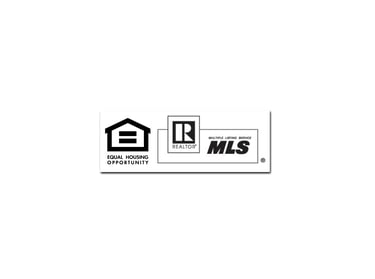Understanding Inheritance Advances vs. Inheritance Loans: What Heirs Need to Know
Inheriting money should be fast and pain-free — but in reality, it happens at a snail's pace. The inheritance process involves constant roadblocks and delays that prevent you from getting your money when you need it. Learn about two main options available: Inheritance Advances and Inheritance Loans, and discover which solution might be right for your situation.
11/24/20243 min read


When waiting for an inheritance to make its way through probate, beneficiaries sometimes find themselves in need of immediate access to those funds. Two main options are available: Inheritance Advances and Inheritance Loans. While these terms are often used interchangeably, they represent distinctly different financial products with their own advantages and disadvantages.
Inheritance Advances: Selling a Portion of Your Inheritance
An inheritance advance, also known as an inheritance funding or estate advance, involves selling a portion of your future inheritance to a funding company at a discount. This is not a loan but rather a purchase agreement.
How Inheritance Advances Work
The process begins with the funding company evaluating your expected inheritance and offering to buy a portion of it. Once approved, you receive immediate cash, typically within days. The funding company then collects directly from the estate when probate concludes, and you have no personal obligation to repay the money.
Advantages of Inheritance Advances
Inheritance advances offer several compelling benefits for heirs seeking immediate access to their inheritance. Perhaps most significantly, they don't require a credit check and involve no monthly payments or interest charges. The funds typically become available within three to five days of approval, providing quick relief for urgent financial needs. Another key advantage is the absence of personal liability if the estate value decreases. Furthermore, since this isn't a loan, it won't impact your credit score, and the fee structure remains fixed with no compounding costs.
Drawbacks of Inheritance Advances
Despite their advantages, inheritance advances come with significant considerations. The effective costs tend to be higher compared to traditional loans, with heirs typically receiving only 60-80% of the assigned portion's value. Once signed, these agreements are non-refundable, which can be problematic if circumstances change. The arrangement might also create tension with other heirs who may disagree with the decision. Additionally, the industry faces limited regulation, and some companies employ aggressive marketing tactics that pressure heirs into quick decisions.
Inheritance Loans: Borrowing Against Your Future Inheritance
An inheritance loan is a traditional lending product where you borrow money using your expected inheritance as collateral. These are actual loans that must be repaid with interest.
How Inheritance Loans Work
The process starts with applying for a loan through a lender specializing in inheritance lending. The lender evaluates both your credit and the estate's value before approval. Upon receiving the loan amount, you'll need to make regular payments, and the loan must be repaid regardless of the final inheritance amount.
Advantages of Inheritance Loans
Inheritance loans typically offer more favorable cost structures compared to advances. They operate within a more regulated lending environment, providing additional consumer protections. The interest paid may offer tax advantages, and making timely payments can help build your credit history. These loans generally provide more flexibility in terms and amounts, and many lenders allow early repayment without penalties.
Drawbacks of Inheritance Loans
The primary challenges of inheritance loans include the requirement for good credit and the obligation to make monthly payments. Borrowers assume personal liability for repayment, and interest continues to accrue throughout the probate process. Some lenders may require additional collateral, and there's always the risk of default if the inheritance is delayed or reduced.
Making the Right Choice
Your choice between an inheritance advance and an inheritance loan should depend on your specific situation. An inheritance advance might be the better option if you need funds immediately, have poor credit, want to avoid monthly payments, or are concerned about personal liability. The advance option works particularly well when the estate is substantial and relatively straightforward.
Conversely, an inheritance loan might be more suitable if you have good credit, are comfortable with monthly payments, prefer lower overall costs, and want to build your credit history. This option typically works best when the probate process is expected to be relatively quick.
Due Diligence Tips
Before proceeding with either option:
Get multiple quotes from different providers
Read all agreements carefully
Consult with an estate attorney
Calculate the total costs
Consider alternative funding sources
Understand the impact on other heirs
Verify the company's reputation and licensing
Conclusion
Both Inheritance Advances and Inheritance Loans can provide access to needed funds during probate, but they serve different needs and come with distinct advantages and disadvantages. The best choice depends on your individual circumstances, including your credit status, immediate financial needs, and comfort with different payment structures.
Always consult with financial and legal professionals before making a decision that could significantly impact your inheritance.




